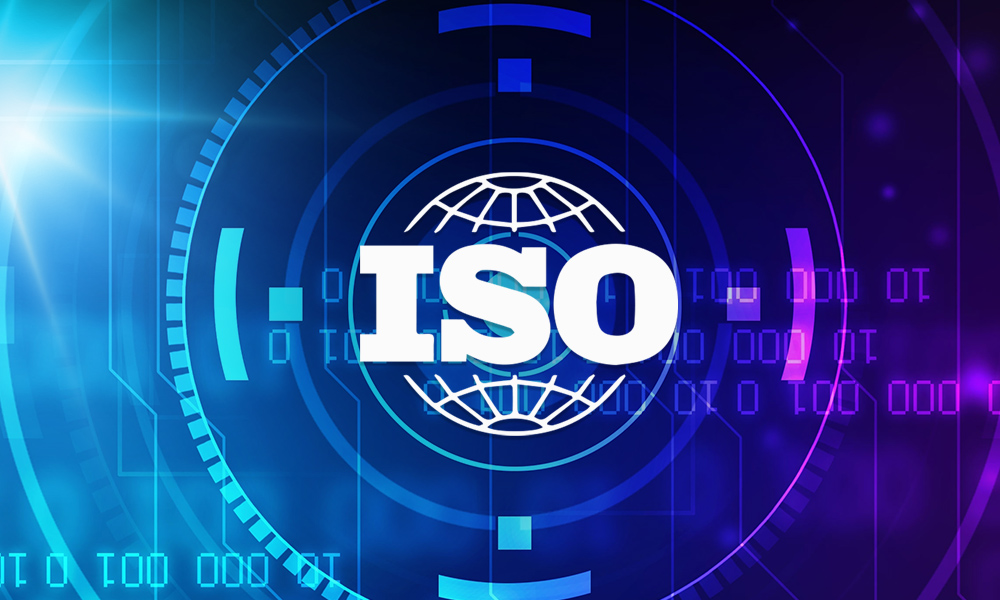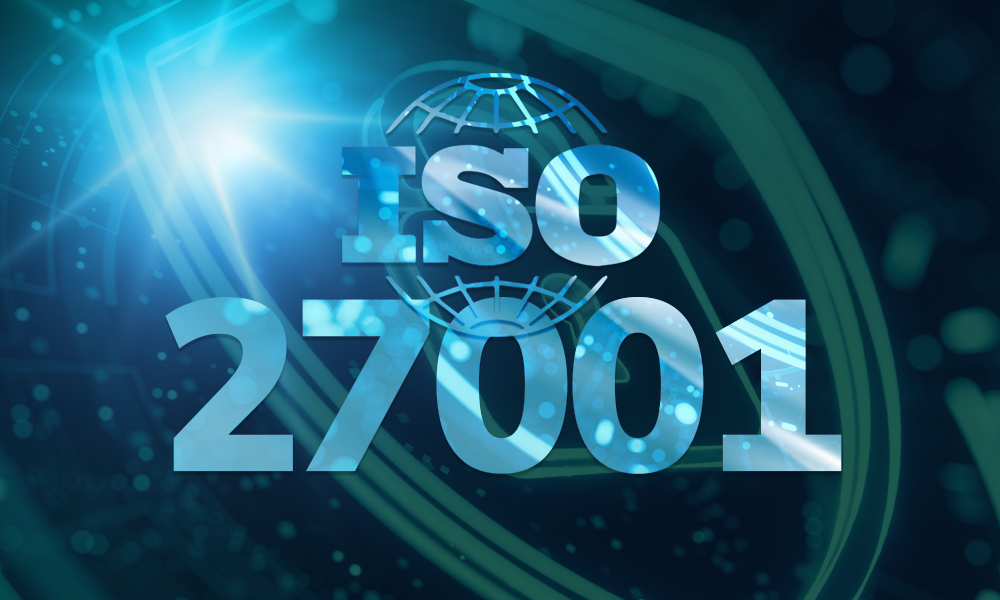What is Information Security?
An Overview
Information is undoubtedly one of an organisation’s most valuable assets, be that client, employee, financial, intellectual property or operational. It is imperative that these information types are protected to ensure privacy, maintain operational integrity and trust with stakeholders, comply with regulations (such as the GDPR), and safeguard the organisation’s reputation. By implementing robust information security measures, organisations can mitigate risks associated with external threats such as cyberattacks (malware, ransomware, and phishing), along with internal threats such as data breaches unauthorised access and human error.
But where do organisations start in terms of implementing information security? This is where information security standards fit in. There are a wide range of standards which can help organisations establish and maintain a comprehensive framework or management system in order to protect their information assets from various threats. Listed below are some of the more prominent ones.
Overview of Key Information Security Standards
ISO 27001
ISO 27001 is a leading global standard designed to help organisations manage their information security management systems (ISMS’). ISO 27001 is a risk-based standard designed to protect sensitive company and customer information with a set of organisational, physical, people and technological controls. The Standard has wide appeal and can be adopted by organisations of all sizes from small and medium-sized enterprises (SMEs) to large multinational corporations and from all market sectors, including both public and private sectors. ISO 27001 was updated in 2022 when a number of the mandatory management system clauses were updated to improve the alignment with other ISO Annex SL standards, such as ISO 9001 and ISO 22301. The more significant changes, however, were made to Annex A controls with the intention of reflecting the evolving nature of cybersecurity threats etc. With ISO 27001, the ISMS is based on a model of continuous improvement, including regular reviews and audits. In order to provide additional assurance to stakeholders, organisations can seek independent assessment though accredited certification bodies and gain certificates that are awarded on 3-year cycles.
Expert's support
Having been involved in implementing ISO 27001 since its inception in 2005, URM is adept at supporting organisations implement an ISO 27001-conformant ISMS from conducting gap analyses and risk assessments, through to remediation activities and delivering management system and security control audits.
SOC 2
SOC 2 (or Service Organization Control 2 to give it its full title) is a standard which is tailored to service providers that store customer data in the cloud, ensuring that this data is managed securely. Target service providers include cloud service providers, IT managed service providers SaaS (Software as a Service) companies, and data centres. SOC 2 is most popular in the United States, where it originated and is widely recognised. However, it is gaining popularity in the UK and other countries with significant technology and cloud service sectors. Companies operating internationally or serving U.S.-based clients often seek SOC 2 compliance to meet market demands and regulatory expectations. The Standard focuses on five trust service criteria: security, availability, processing integrity, confidentiality, and privacy and provides detailed audit reports that assess a service provider's controls in these areas.
How URM can help?
URM can provide a full range of SOC 2 services, from delivering gap analyses and assessing what efforts are required to comply or attest, to preparing organisations for a SOC 2 report (be that Type 1 or Type 2).
PCI DSS
The Payment Card Industry Data Security Standard (PCI DSS) is a niche standard which is designed to secure credit and debit card transactions against data theft and fraud. It includes stringent security requirements such as encryption, access control, and regular security testing. The Standard is globally recognised and widely implemented in many countries and is particularly popular and mandated in regions with significant e-commerce and financial activities. As such, PCI DSS is specifically targeted at any organisation that handles payment card data, including merchants, processors, acquirers, issuers and service providers, effectively any entity involved in processing, storing, or transmitting credit and debit card information. In order to validate compliance, organisations must undergo regular assessments. Organisations handling large volumes of transactions (over 6 million per card brand for merchants and 300,000 for service providers) must have their compliance assessed by an independent Qualified Security Assessor Company (QSAC), such as URM, which completes a report on compliance (RoC).
Professional help
Apart from conducting RoC assessments and supporting SAQs, URM can assist organisations by conducting gap analyses and helping with any PCI implementation or remediation activities.
Gambling Commission RTS
The Gambling Commission (GC) Remote Technical Standards (RTS) serves as a critical regulatory framework for the UK online gambling industry, ensuring that operators maintain high standards of fairness, security, and player protection. The GC RTS is specifically targeted at online gambling operators and software providers operating within the UK market. This includes companies offering online casino games, sports betting, bingo, and other forms of remote gambling. Compliance with the RTS is mandatory for these operators to obtain and retain their licences from the UK Gambling Commission. The RTS aims to ensure that gambling products and services are fair, secure, and reliable, protecting consumers and maintaining the integrity of the UK gambling industry. In terms of security, RTS mandates that organisations implement robust security controls to protect player data and prevent unauthorised access or cyberattacks.
How URM can help?
URM can provide a full range of SOC 2 services, from delivering gap analyses and assessing what efforts are required to comply or attest, to preparing organisations for a SOC 2 report (be that Type 1 or Type 2).
SWIFT CSP
The Society for Worldwide Interbank Financial Telecommunication (SWIFT) Customer Security Programme (CSP) is aimed at enhancing the security of the SWIFT network, which is used for global financial transactions to prevent, detect, and respond to fraudulent activities. The SWIFT CSP is aimed at financial institutions and entities that use the SWIFT network for international banking transactions. As part of the CSP, users are required to submit their attestation of compliance with the SWIFT Customer Security Controls Framework (CSCF) and share these with counterparts. The 2022 version of the CSCF contains 31 controls, of which 22 are mandatory and 9 are advisory. These controls are mapped against international standards such as NIST, PCI DSS and ISO 27002. The 31 controls are based on 3 objectives; ‘Secure your Environment’, ‘Know and Limit Access’ and ‘Detect and Respond’ and are underpinned by 8 principles.
How URM can help?
URM offers a range of SWIFT CSP services from conducting a review of current cybersecurity posture against the CSCF requirements and identifying gaps, through to remediation support and an independent assessment of policies, processes, and business practices against CSCF requirements.
NIST
The National Institute of Standards and Technology (NIST) is a non-regulatory federal agency operating within the U.S. Department of Commerce which plays a pivotal role in setting standards and guidelines for the U.S. technology industry and promoting the safe and secure use of technology in both the private and public sectors. NIST is particularly relevant to U.S.-based organisations but has also been adopted globally. Notable within NIST frameworks is the Cybersecurity Framework (CSF), which provides a set of best practices for managing cybersecurity risks, and the NIST Special Publication (SP) 800 series, which includes detailed guidance on a range of cybersecurity controls and practices ranging from access control and incident response to physical security and risk management. In February 2024, NIST released v2.0 of the CSF, which introduced a 6th function, Govern, to the Framework Core and expanded its scope to explicitly include all organisations in any sector.
How URM can help?
URM can support organisations by assisting with each of the 7-step CSF implementation process or specific steps including scoping, creating current and target profiles, conducting risk assessments, prioritising gaps and implementing action plans.
CMMC
The Cybersecurity Maturity Model Certification (CMMC) is a U.S.-based standard specifically tailored to address the cybersecurity requirements and challenges faced by the U.S. defence sector. It is designed to ensure that supply-chain contractors working with the U.S. Department of Defense (DoD) implement adequate cybersecurity practices. In order to protect against cyber threats, defence contractors and other organisations that handle controlled unclassified information (CUI) are required to meet a set of cybersecurity standards and practices to adopt appropriate cybersecurity measures. These measures incorporate best practices from various cybersecurity standards, such as NIST and ISO 27001.
In November 2021, the DoD announced ‘CMMC 2.0’ an updated programme structure with three CMMC maturity levels (Foundational, Advanced and Expert), each building on the previous one, with the highest level requiring organisations to implement advanced and comprehensive cybersecurity practices. Organisations which handle CUI on behalf of the DoD are required to achieve compliance or certification at the level which corresponds to the type and sensitivity of information being handled.
Professional help
URM’s support services include conducting gap analyses, implementing any identified improvements and supporting the certification audits.
Contact the ISO 27001 Experts Today
Having assisted over 400 organisations to implement an ISMS and then achieve ISO 27001 certification since the Standard’s establishment in 2005, we at URM are the ideal experts and partners to help you certify. With our fully-tailored approach, we can support you through each stage of the ISO 27001 management system lifecycle, offering guidance specific to your organisation’s unique requirements.
Get in touch with our information security experts today to find out more.

InfoSec Solutions & Products
One the key requirements of ISO 27001 is the need for robust risk assessment which can produce repeatable and comparable results. With its proven, best practice methodology, URM’s information security risk management software, Abriska 27001, enables you to meet this requirement. We can also assist you to increase awareness among your staff with our expertly designed and engaging learning management system (LMS), Alurna.

InfoSec Training Courses
Our information security and ISO 27001 training courses can help you learn how to effectively manage information security. Our Certificate in Information Security Management Principles (CISMP) training course will prepare you to take the BCS (Chartered Institute for IT) administered exam, enabling you to gain an industry-recognised qualification. Meanwhile, our Introduction to ISO 27001 Course and ISO/IEC 27001:2022 Transition Course will significantly enhance your ISO 27001 knowledge and professional skillset.
Webinars & Events
URM has gained a reputation as the preeminent UK provider of live webinars, aimed at delivering valuable and practical insights to organisations looking to improve their information security, risk management, data protection etc. The webinars are delivered by our senior consultants who share hints and tips on topics such as certifying to ISO 27001 and Cyber Essentials, complying with the GDPR. All of our webinars are completely free to attend, and include an opportunity to ask questions at the end.
Learn how to achieve ISO 27001 certification with guidance from URM and BSI. Understand key steps, benefits, and pitfalls in implementing an effective ISMS.

This webinar focuses on turning PCI DSS from a point‑in‑time certification into an ongoing, integrated security practice.

Join URM & BSI for expert guidance on achieving ISO 27001 certification, maximising benefits, and avoiding pitfalls in information security management.


Information Security FAQs
What are 4 types of information security?
If we look to guidance from Annex A of ISO 27001, then the answer is organisational, people, physical and technological. The International Standard groups information security into these 4 categories. The ‘organisational’ category requires the creation of policies, roles and responsibilities and day-to-day business activities. The ‘people’ category ensures that the most appropriate staff are employed, and that they understand what is expected of them in relation to the business’ approach to infosec. ‘Physical’ controls relate to the security of business premises, clear desk policies etc, whilst, ‘technological’ controls relate to measures that may be adopted by organisations to assist in securing information through the use of technology such as capacity management, configuration management, change management, network security, firewalls, cryptography etc.
What are the 3 principles of information security?
The three aspects that information security (infosec) seeks to protect are ‘confidentiality’, ‘integrity’ and ‘availability’. Confidentiality ensures that information is not made available or disclosed to unauthorised entities. Integrity protects the accuracy and completeness of assets, whilst Availability ensures that information is accessible and usable on demand by authorised individuals.tc.
What are information security examples?
Examples of information security include encryption, firewalls, antivirus software, multi-factor authentication (MFA), vetting of individuals, controlling access to premises / information and providing staff awareness training.
What are 5 information security policies?
Policies provide direction on your organisation’s approach to different aspects of information security management. Policies may relate to the classification of data, password management, acceptable use of assets, authentication procedures and incident response - these are five examples, but your organisation may choose to formulate a policy relating to any aspect of information security (infosec) management.

Information Security Risk Assessment and Treatment: Understanding Relevant Risks
URM’s blog explains the building blocks of information security risk, outlining how risks can be valued and prioritised, the role of rise appetite, and more.

Read URM’s blog, where we explore the importance of clock synchronisation for cyber security and resilience, and how to meet the requirements of Control 8.17.

URM’s blog offers key advice on what to expect from your SOC 2 audit in practice, the types of evidence you will need to provide, how best to prepare, and more.

URM’s blog explores Clause 5.1 of ISO 27001, what you must do to meet its requirements, and why leadership & commitment are vital to an effective ISMS.
